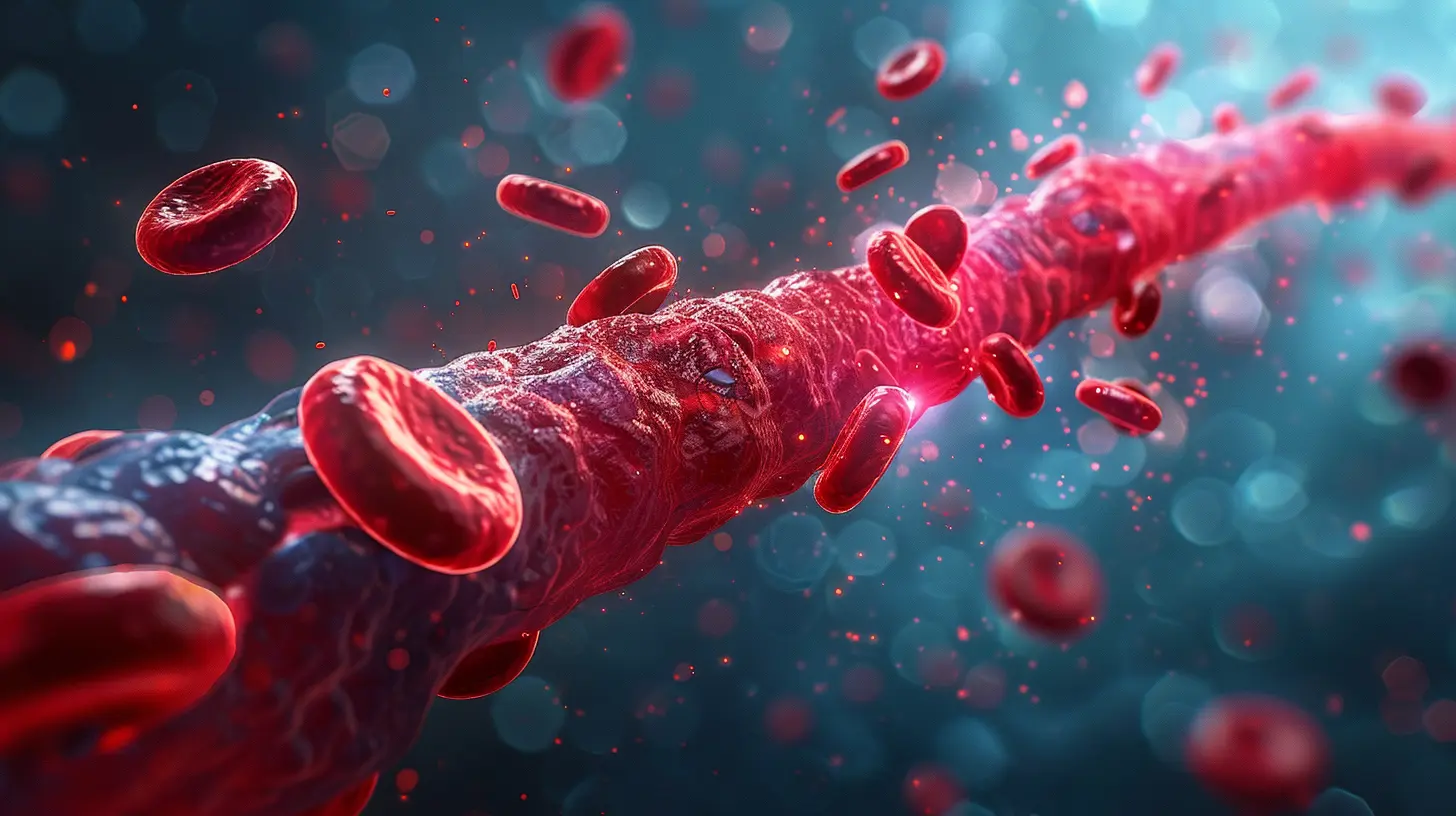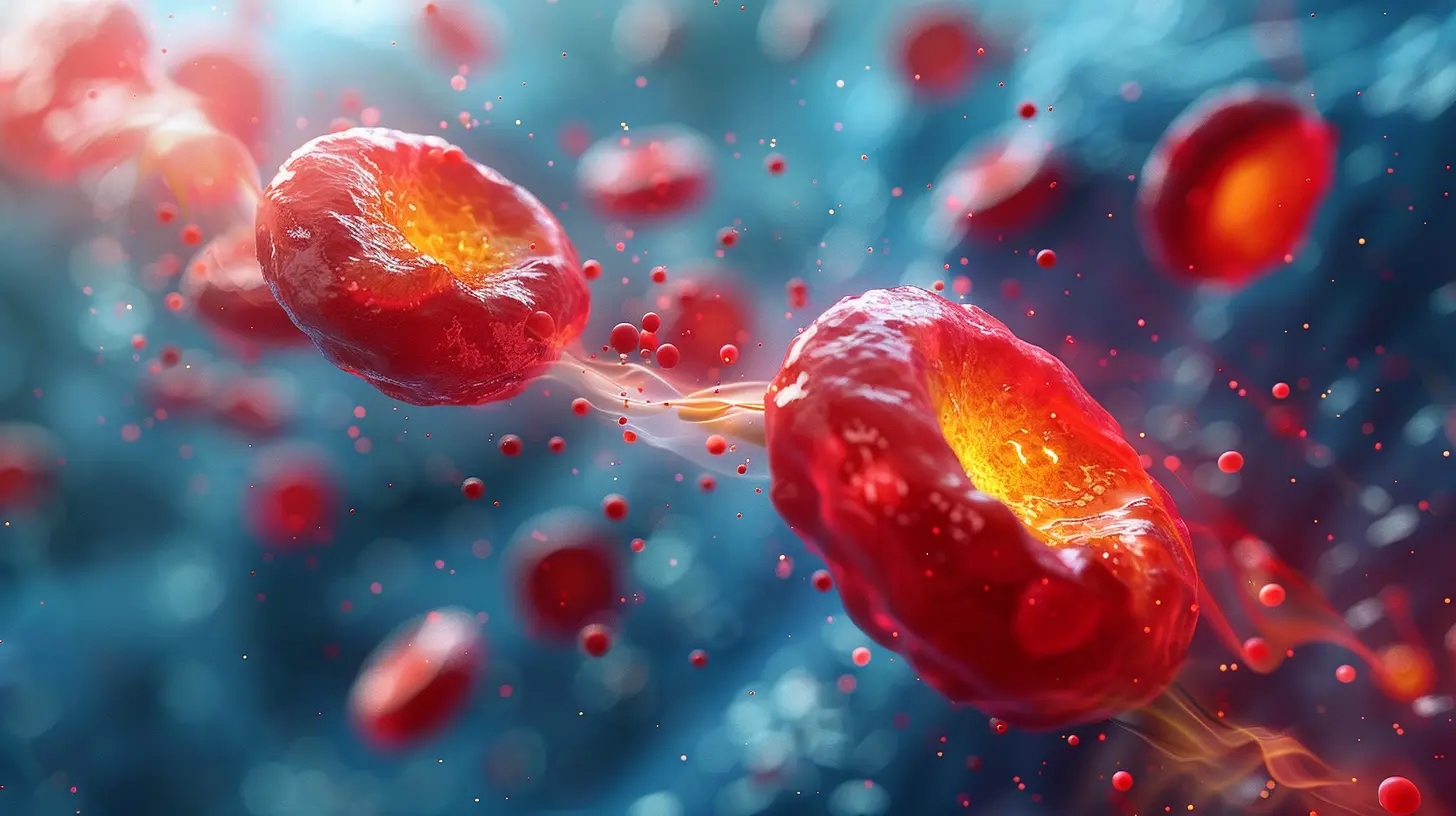The Silent Dangers of High Cholesterol Levels
4 June 2025
High cholesterol is one of those sneaky health issues that you don’t really feel creeping up on you—until it’s too late. It doesn’t cause pain, it doesn’t make you feel sick (at least not right away), yet it’s quietly damaging your body behind the scenes. And the worst part? Many people don’t even know they have it until they face a serious health scare.
So, what’s the big deal about high cholesterol? Why does it matter, and what can you do about it? Let’s break it down in a way that makes sense. 
What Is Cholesterol, and Why Do We Need It?
Most people hear the word "cholesterol" and immediately think it's bad. But cholesterol itself isn’t the enemy—it's actually essential for your body. It helps build cell membranes, produce hormones, and even aids in digestion.The problem begins when we have too much of the wrong kind of cholesterol. That’s when things start going downhill.
There are two main types:
- LDL (Low-Density Lipoprotein) – Also known as "bad cholesterol," LDL can build up in your arteries, leading to blockages and increasing your risk of heart disease and stroke.
- HDL (High-Density Lipoprotein) – This is the "good cholesterol" that helps remove excess LDL from your bloodstream.
So, it’s not about getting rid of cholesterol altogether—it’s about maintaining the right balance. 
The Silent Dangers of High Cholesterol
One of the scariest things about high cholesterol is that it doesn’t show obvious symptoms. You could be walking around with dangerously high levels and have no idea—until something drastic happens, like a heart attack or stroke.1. Increased Risk of Heart Disease
When LDL cholesterol builds up in your arteries, it forms plaque—a thick, sticky substance that narrows the arteries and makes it harder for blood to flow. This condition, called atherosclerosis, can lead to heart attacks. Imagine trying to drink a milkshake through a clogged straw—that’s what’s happening to your blood vessels.2. Higher Chance of Stroke
If a plaque buildup blocks an artery in your brain, you’re looking at a major risk for stroke. A stroke happens when blood flow to part of your brain is cut off, causing brain cells to die. The effects can be devastating—loss of speech, paralysis, or even death.3. Hypertension (High Blood Pressure)
When your arteries are clogged, your heart has to work harder to pump blood. This puts extra strain on your heart, leading to high blood pressure. Over time, this can weaken your heart muscles and increase the likelihood of heart failure.4. Diabetes Complications
If you already have diabetes, high cholesterol only makes things worse. Diabetes tends to lower HDL (the good cholesterol) while raising LDL (the bad cholesterol), increasing the risk of heart disease. It’s like adding fuel to an already burning fire.5. Peripheral Artery Disease (PAD)
Ever feel pain in your legs when walking? That could be a warning sign of Peripheral Artery Disease, where cholesterol buildup reduces blood flow to your limbs. Left untreated, PAD can lead to infections, slow wound healing, and even amputation.
What Causes High Cholesterol?
Now that we know the dangers, let’s talk about what leads to high cholesterol in the first place. It’s not just about eating too much greasy fast food—although that’s definitely a factor!1. Poor Diet
Eating too many saturated fats and trans fats (found in fried foods, processed snacks, and red meat) raises LDL cholesterol levels. Meanwhile, not eating enough fiber, fruits, and vegetables means your body lacks the nutrients needed to balance cholesterol levels.2. Lack of Exercise
Regular physical activity helps boost HDL (good cholesterol) while lowering LDL (bad cholesterol). Sitting for long hours without movement allows cholesterol levels to creep up.3. Genetics
Sometimes, high cholesterol runs in families. This is called familial hypercholesterolemia, and it means your body naturally produces more LDL cholesterol than it should. If your parents had high cholesterol, you could be at risk too.4. Smoking and Excessive Alcohol Consumption
Smoking damages blood vessels, making it easier for cholesterol to stick and form plaques. Excessive drinking, on the other hand, can increase triglycerides (another type of fat in your blood), worsening your cholesterol profile.5. Age and Gender
As you get older, your body's ability to manage cholesterol weakens. Also, women tend to have lower cholesterol levels than men before menopause, but after menopause, LDL levels can rise significantly.
How to Keep Your Cholesterol Levels in Check
Now for the good news—you can control your cholesterol levels by making a few lifestyle changes. You don’t need to go on extreme diets or run marathons, but small, sustainable habits make a big difference.1. Eat Heart-Healthy Foods
Swap out the bad fats for heart-healthy alternatives:✔ Choose olive oil over butter
✔ Eat more salmon, nuts, and avocados (rich in Omega-3)
✔ Load up on fiber-rich foods like oats, beans, and whole grains
✔ Snack on fruits and veggies instead of processed junk
2. Get Moving
You don’t have to become a gym rat, but 30 minutes of moderate exercise at least five times a week can work wonders. Try brisk walking, cycling, swimming, or even dancing—whatever keeps you active.3. Quit Smoking
If you need another reason to quit, this is it. Within weeks of quitting smoking, your HDL cholesterol levels start improving, reducing your risk of heart disease.4. Cut Back on Alcohol
A little wine now and then is fine, but drinking in excess raises triglycerides and contributes to weight gain—both of which spell trouble for your cholesterol levels.5. Maintain a Healthy Weight
Being overweight increases LDL cholesterol and lowers HDL cholesterol. Losing even 5-10% of your body weight can make a significant difference in your cholesterol profile.6. Get Regular Check-Ups
Since high cholesterol is a silent killer, get your cholesterol levels checked regularly—at least every 4-6 years, or more often if you have risk factors like a family history of heart disease.Final Thoughts
High cholesterol might not announce itself with obvious symptoms, but that doesn’t mean you should ignore it. It’s a slow and silent threat, quietly increasing your risk of heart disease, stroke, and other serious complications. The good news? You have control over it.By making smart lifestyle choices—eating healthier, staying active, and getting regular check-ups—you can keep cholesterol in check and protect your heart for years to come. Your body will thank you for it.
all images in this post were generated using AI tools
Category:
CholesterolAuthor:

Jackson Mahoney
Discussion
rate this article
3 comments
Juniper Hardy
Great article! It’s eye-opening to see how high cholesterol can sneak up on us. Let’s prioritize our heart health together! 💖
June 20, 2025 at 10:56 PM

Jackson Mahoney
Thank you! I’m glad you found it insightful. Let’s keep spreading awareness about heart health! 💖
Rylan Fuller
What fascinating insights! I never realized high cholesterol could lead to such silent dangers. I'm curious—what specific lifestyle changes can effectively lower cholesterol levels, and are there particular foods to prioritize or avoid? Would love to learn more!
June 15, 2025 at 5:00 AM

Jackson Mahoney
Thank you for your interest! To lower cholesterol, prioritize a diet rich in fruits, vegetables, whole grains, and healthy fats (like olive oil and avocados). Avoid processed foods, trans fats, and excessive sugar. Regular exercise and maintaining a healthy weight also play a crucial role.
Kristy McIntyre
Stay informed and take charge of your health today!
June 4, 2025 at 3:12 AM

Jackson Mahoney
Thank you for your insightful comment! Taking charge of our health is crucial, especially when it comes to understanding cholesterol's impact.



